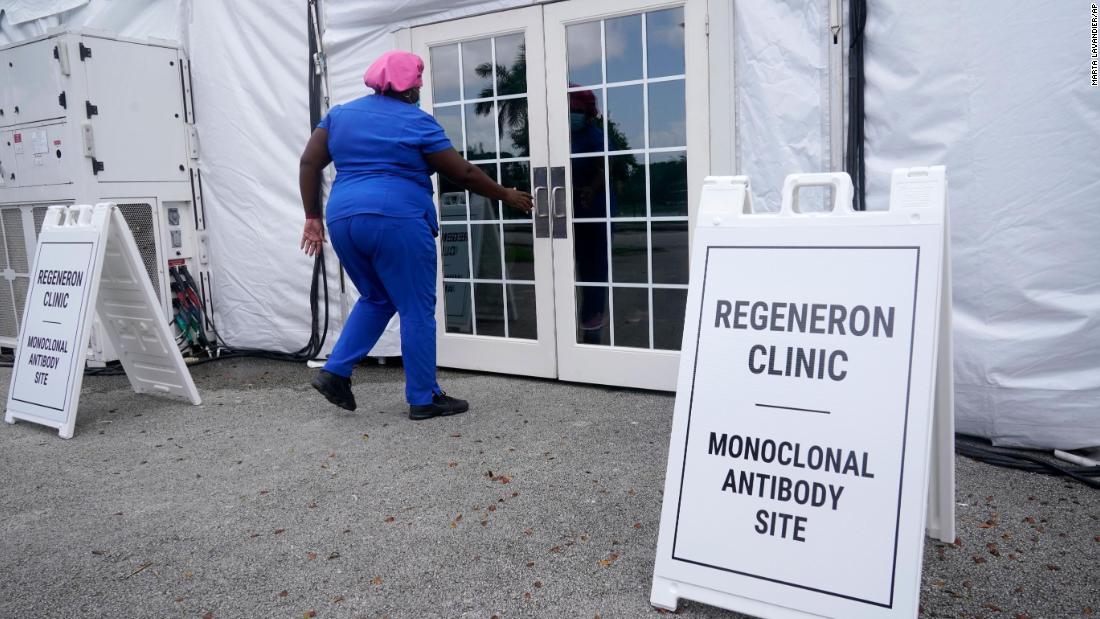
Movements occur as the demand for monoclonal antibodies has increased as cases increase due to the spread of the Delta variant and low vaccination rates in some areas of the country.
Monoclonal antibodies are proteins in the immune system designed by laboratories that initiate an immune response against an infection. The U.S. Department of Health and Human Services says that as of Sept. 10, 2.17 million doses of monoclonal antibodies have been sent to all sites and 938,000 doses have been used since December. About 43% of the doses distributed have been used since 3 September.
An HHS spokesman said seven states have accounted for 70 percent of therapy orders. These seven states are Florida, Texas, Mississippi, Tennessee, Alabama, Georgia and Louisiana.
“In the face of this reality, we must work to ensure that the supply of these life-saving therapies is available to all states and territories, not just some,” the HHS spokesman said.
Distribution, which is similar to a system used earlier this year, will fall to HHS, which will assign the product to states and territories each week, rather the administration sites that will order them directly.
“HHS will determine how much product each state and territory will receive on a weekly basis. State and territorial health departments will later identify the places that will receive the product and how much,” the spokesman said. “This system will help maintain equitable distribution, both geographically and temporarily, across the country, providing states and territories with a consistent and equitably distributed supply over the coming weeks.”
US buys more antibody treatments
Regeneron announced on Tuesday that the Biden administration has contracted with the company an additional 1.4 million doses of its Covid-19 treatment, bringing the total to 3 million doses purchased by the US.
The treatment is a cocktail of two monoclonal antibodies, authorized for emergency use by the U.S. Food and Drug Administration to reduce the risk of hospitalization and death in some Covid-19 patients and close contacts of infected people.
Regeneron said it will provide the additional doses by the end of January 2022 and will begin supplying them this month, the company said in a statement. Regeneron said it will provide treatment for $ 2,100 per dose to the government, which will continue to provide it to patients at no cost. The company received $ 2.94 billion for the additional doses, the U.S. Department of Defense (DOD) said in a statement.
On Wednesday, Eli Lilly and Company announced that the U.S. government purchased 388,000 doses of its Covid-19 etesevimab monoclonal antibody treatment to supplement previously acquired doses of its bamlanivimab monoclonal antibody.
About 200,000 doses are expected to be shipped during the third quarter of 2021, and the rest will be shipped in the fourth quarter, the company said.
Eli Lilly’s treatment shipments had previously stopped because they did not work against the Beta and Gamma coronavirus variants, but distribution resumed earlier this month as demand for antibody treatment increased. There is evidence that bamlanivimab and etesevimab together are effective against the Delta coronavirus variant that dominates the United States.
“The recent increase in Covid-19 cases has led to a substantial increase in the use of monoclonal antibody drugs, particularly in areas of the country with low vaccination rates,” said Dr. Daniel Skovronsky, Lilly’s chief scientist and physician and president. of Lilly Research Laboratories said in a statement. “Lilly developed bamlanivimab and etesevimab to administer them together, in anticipation of variants such as the highly contagious Delta variant, which currently accounts for more than 98 percent of all identified cases of Covid-19 in the United States.”
CNN’s Jamie Gumbrecht contributed to this report.